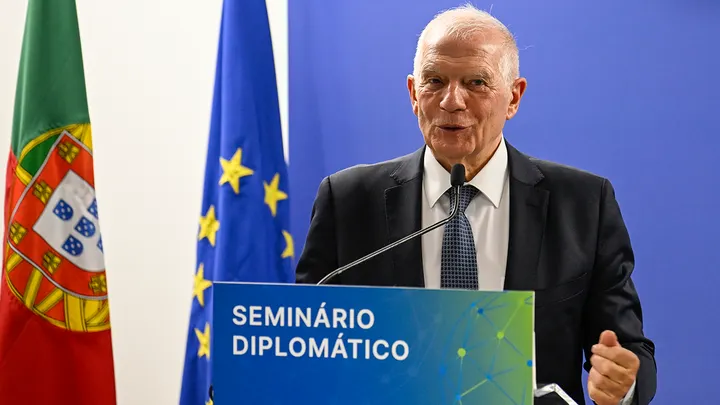In a striking statement on Monday, European Union foreign policy chief Josep Borrell hinted at the necessity for the United States to reconsider its military support to Israel, particularly in light of the rising civilian toll in the ongoing conflict in Gaza. Speaking to journalists after a gathering of EU development aid ministers in Brussels, Borrell reflected on the recent remarks by U.S. President Joe Biden, who characterized Israel’s retaliation to the Oct. 7 Hamas incursion as “over the top.” This comes against the backdrop of a growing chorus of international concern over the disproportionate number of civilian casualties emerging from Gaza.
Borrell’s comments underscore a critical juncture in international diplomacy, as he suggested, “Well, if you believe that too many people are being killed, maybe you should provide fewer arms to prevent so many people being killed.” This sentiment was further amplified by a Dutch court’s landmark decision to halt all exports of F-35 fighter jet components to Israel, citing potential violations of international law in the Gaza conflict. Borrell pointed out the stark contradiction between the international community’s vocal criticisms of Israel’s civilian casualty toll and the continued provision of military aid that could be contributing to the very issue at hand.
The EU foreign policy chief did not mince words when addressing Israeli Prime Minister Benjamin Netanyahu’s stance on civilian protection, portraying him as deaf to the international pleas for restraint. Borrell’s frustration was palpable as he questioned the feasibility of Netanyahu’s suggestion for the evacuation of Palestinian civilians from Gaza’s Rafah area, rhetorically asking, “Where are they going to evacuate these people?”
As Israel’s most significant foreign arms supplier, the United States provides approximately $3.8 billion in military aid to the country annually. This includes advanced fighter jets and powerful munitions. Despite increasing international calls for a reassessment of this support, Washington has yet to signal any shift in its policy.
Borrell’s statements bring to the forefront the complex interplay between military aid, civilian protection, and international law within the context of the Israeli-Palestinian conflict. His call for a reevaluation of arms provisions to Israel by its allies, notably the United States, raises pressing questions about the balance between supporting national security interests and upholding humanitarian principles. As the situation in Gaza continues to evolve, the international community’s response will be closely watched for indications of a potential shift in the longstanding dynamics of military aid and diplomatic support in the region.







